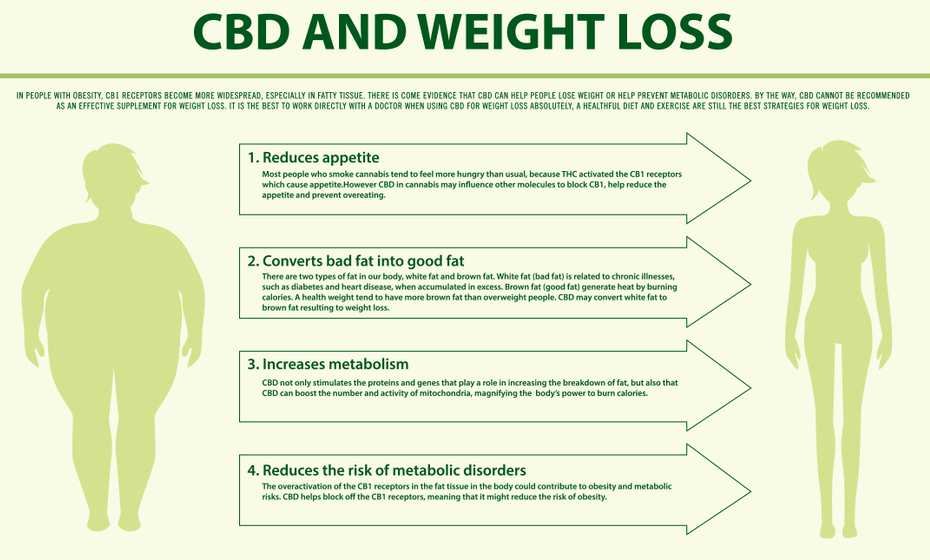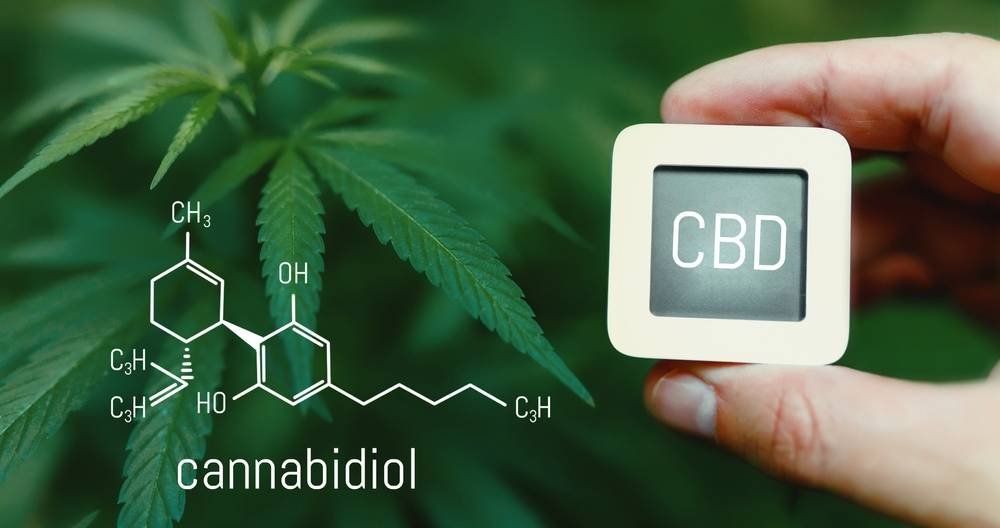CBD, a hemp-derived compound has been gaining popularity due to its therapeutic and wellness benefits. However, there has been considerable discussion about whether CBD can change your appetite and weight.
In this article, we’ll explore the effects of CBD on appetite and weight and provide you with the most accurate information based on the latest research.
Can CBD cause the munchies?
The phrase “munchies” refers to an increase in hunger or food cravings that might occur after consuming cannabis (source). Since commercially available CBD comes from the hemp plant, which is a legal cousin to cannabis, it’s natural for many people to wonder if it can cause the same effects.
Rest assured, the munchies can only be caused by “delta-9 THC,” a psychoactive cannabinoid present in cannabis and hemp plants, which is responsible for binding with the CB1 receptor in the brain, causing an increase in your cravings for food.
Since CBD has no binding power to CB1 receptors, it can’t make you feel hungry or give you munchies.
A recent study (1) suggests that CBD can have appetite-suppressing effects, which could potentially counteract the appetite-stimulating effects of THC.
Does CBD increase or decrease the appetite?
Studies suggest that CBD can decrease appetite and the cravings of food intake. For example, a study (2) conducted on rats found that CBD decreased their food intake and body weight, potentially due to the activation of serotonin receptors.
Another study has reported that CBD can increase appetite in certain situations. For example, a study (3) conducted on cancer patients undergoing chemotherapy found that those who took CBD had an increased appetite and ate more food than those who didn’t.
However, it’s worth noting that the effects of CBD on appetite can also vary depending on the dosage and method of consumption. For example, consuming CBD in higher doses can lead to an increase in appetite, while controlled doses can have the opposite effect.
How does CBD affects body weight?

A study (4) discovered that CBD was able to regulate CB1 receptors to cause an anti-obesity effect, this indicates that CBD could be an effective aid for weight loss. However, the exact mechanism for this result is still being explored.
Another study (5) found that repeated administration of CBD in rats led to a significant decrease in body weight gain, with the effect being more pronounced at higher doses.
The study also found that the CB2 receptor played a role in a decrease in body weight gain, suggesting that CBD can affect weight through the activation of CB2 receptors.
A study (6) also suggests that CBD can have a more indirect impact on weight, such that, it can help with weight loss by reducing inflammation and improving metabolic function.
Inflammation has been linked to weight gain and obesity, and CBD has anti-inflammatory properties that could potentially benefit weight management.
However, it’s important to note that the research on the effects of CBD is still in its early stages, and more studies are needed to fully understand the benefits and risks.
Final thoughts
The effects of CBD on appetite and weight are still being explored. While most studies have suggested that CBD can reduce appetite and body weight at minimal dosages, some have produced conflicting results.
It’s also important to note that the way CBD is consumed, the dosage, and the quality of the product can affect its effects on appetite and weight.
As always, remember that when using any supplement like CBD, it’s important to consult with a healthcare professional before using it, especially if you have any underlying medical conditions or are taking medications.
Disclosure:
The information in this article is intended for general use only and may not always be appropriate for everyone’s needs. Your health and wellness are unique to you, so before acting on anything we say, seek personalized advice from a medical professional.
We value the accuracy and editorial integrity of all our articles, and we strive to ensure that the content we publish is accurate and up-to-date to the best of our knowledge.

